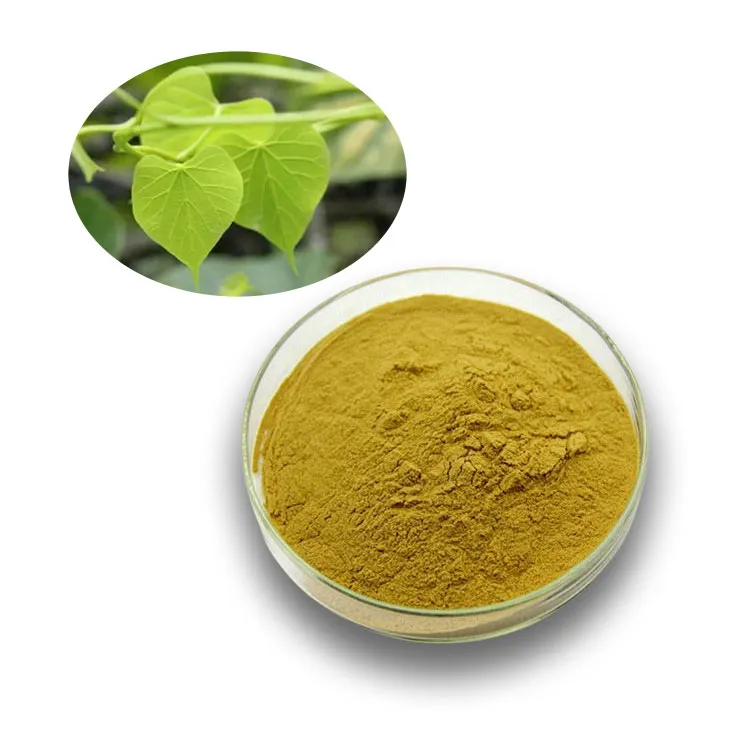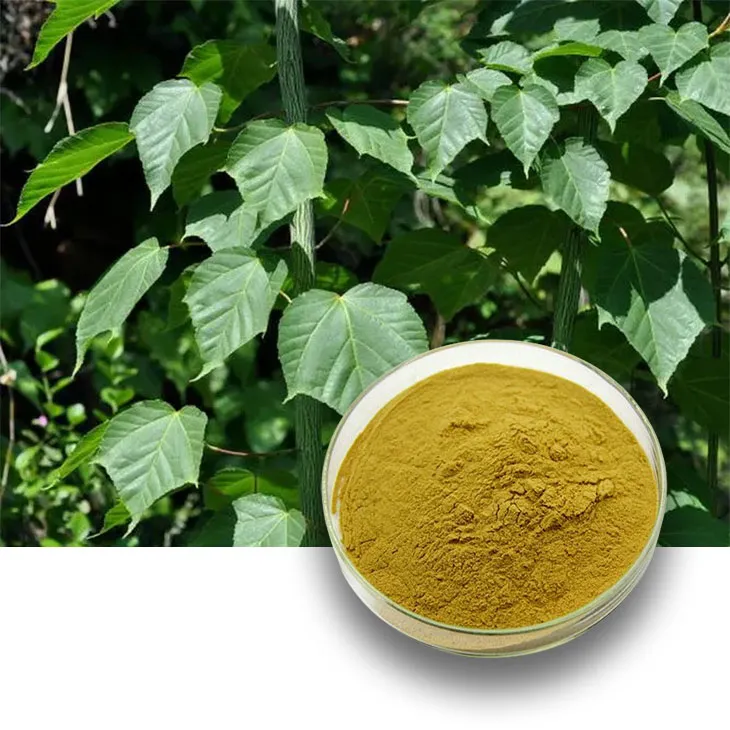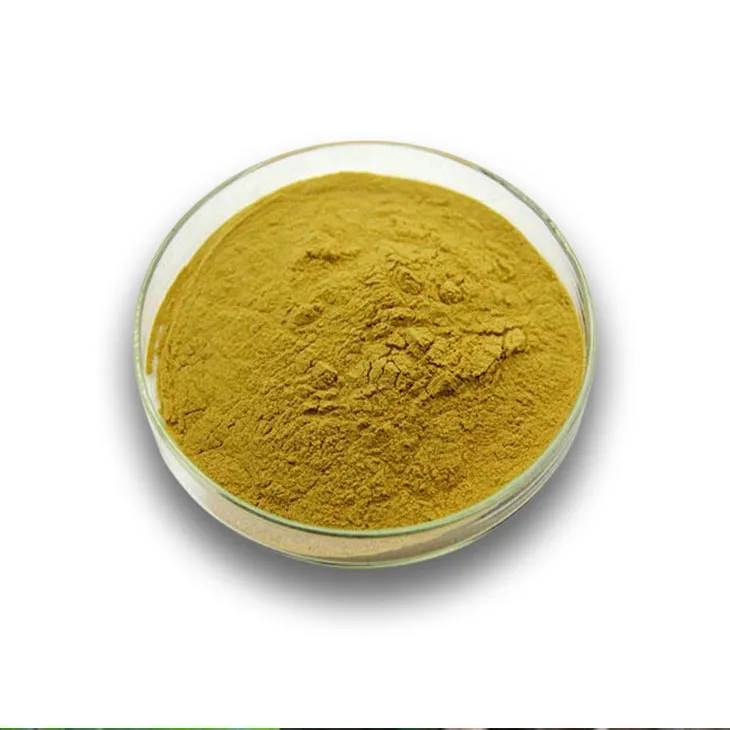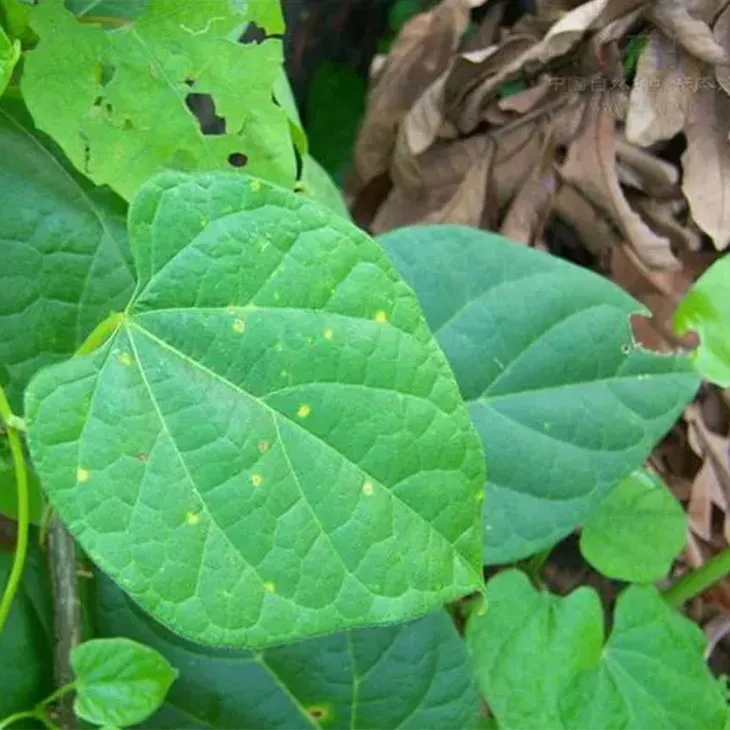- 0086-571-85302990
- sales@greenskybio.com
Manufacturers of Tinospora cordifolia extracts.
2024-12-02

Introduction
Tinospora cordifolia, known as Heart - leaved Moonseed, is a plant with valuable medicinal properties. The manufacturers of its extracts are significant players in the herbal and pharmaceutical industries. They are involved in a complex process that begins with the procurement of the plant and ends with the production of various products that utilize these extracts.

Source of Tinospora cordifolia
Collaboration with Local Farmers and Collectors
Manufacturers start by carefully sourcing high - quality Tinospora cordifolia plants. They often collaborate with local farmers or collectors who possess in - depth knowledge of the plant's growth habitats. These local partners are crucial as they understand the best areas for the plant to grow, the ideal time for harvesting, and other factors that can affect the quality of the raw material.- Local farmers may have generations of experience in cultivating or harvesting Tinospora cordifolia in a sustainable manner.
- Collectors, on the other hand, know the wild habitats where the plant can be found in its natural state. They are aware of the environmental conditions that promote the growth of healthy plants.

Extraction Techniques
Solvent Extraction
Once the raw material is obtained, manufacturers use advanced extraction techniques. One common method is solvent extraction. In this process, a suitable solvent is used to dissolve the desired compounds from the plant material.- The choice of solvent is critical as it can affect the purity and quality of the extract. For example, ethanol is often used as it is relatively safe and can effectively extract a wide range of compounds.
- The plant material is soaked in the solvent for a specific period, and then the solvent is separated from the plant residue. This separation can be achieved through filtration or other separation techniques.
Supercritical Fluid Extraction
Another technique is supercritical fluid extraction. Supercritical fluids, such as supercritical carbon dioxide, are used.- Supercritical carbon dioxide has properties that make it an excellent solvent for extracting bioactive compounds. It can be easily removed from the extract, leaving behind a relatively pure product.
- This method is often preferred for its ability to operate at relatively low temperatures, which helps to preserve the integrity of the heat - sensitive compounds in Tinospora cordifolia.
Traditional Methods
In addition to modern techniques, some manufacturers may also use traditional methods.- These traditional methods may have been used for centuries in certain cultures. For example, maceration, where the plant material is soaked in a liquid (usually water or oil) for an extended period.
- Although traditional methods may not be as efficient as modern extraction techniques in terms of yield, they may produce extracts with unique properties that are valued in some traditional medicine systems.

Quality Control
Quality control is of utmost importance at every stage of the manufacturing process.
- Manufacturers test for the presence of active compounds such as alkaloids, flavonoids, and terpenoids. These compounds are responsible for the plant's various health - promoting effects.
- They use advanced analytical techniques like high - performance liquid chromatography (HPLC) and gas chromatography - mass spectrometry (GC - MS) to accurately identify and quantify these compounds.
- Quality control also involves checking for contaminants. This includes heavy metals, pesticides, and other harmful substances that may be present in the raw material or introduced during the extraction process.
- The physical characteristics of the extract, such as its color, odor, and consistency, are also monitored as they can indicate the quality and purity of the product.

Applications of Tinospora cordifolia extracts
Pharmaceutical Applications
In the pharmaceutical sector, Tinospora cordifolia extracts can be the basis for new drugs.- For diseases like diabetes, the active compounds in the extract may help regulate blood sugar levels. They could potentially interact with the body's metabolic pathways to improve insulin sensitivity or glucose uptake.
- In the case of inflammation, the anti - inflammatory properties of the extract may be harnessed to develop drugs for conditions such as arthritis. Compounds like flavonoids are known for their anti - inflammatory effects.
- For liver disorders, the extract may support liver function. It could help in detoxification processes, protect liver cells from damage, and promote the regeneration of damaged liver tissue.
Dietary Supplement and Herbal Medicine Markets
In the dietary supplement and herbal medicine markets, Tinospora cordifolia extracts are popular.- Their immune - boosting properties make them a sought - after ingredient in supplements. The presence of certain alkaloids and terpenoids may stimulate the immune system, enhancing the body's ability to fight off infections.
- As antioxidants, they can help protect the body from oxidative stress. Oxidative stress is associated with various health problems, including aging, cancer, and cardiovascular diseases. The flavonoids and other compounds in the extract can scavenge free radicals, reducing the damage caused by oxidative processes.
Regulatory Requirements
Manufacturers also need to comply with strict regulatory requirements to ensure the safety and efficacy of their products in different regions.
- In some countries, there are specific regulations regarding the use of herbal extracts in pharmaceuticals and dietary supplements. These regulations may cover aspects such as the maximum allowable dosage, labeling requirements, and the need for pre - market approval.
- Manufacturers must ensure that their extraction processes meet the quality and safety standards set by regulatory bodies. This includes proper documentation of the manufacturing process, quality control measures, and the origin of the raw materials.
- They also need to stay updated with the changing regulatory landscape. New regulations may be introduced to address emerging safety concerns or to align with international standards.
Conclusion
The manufacturers of Tinospora cordifolia extracts are involved in a multi - faceted process that encompasses sourcing, extraction, quality control, and compliance with regulatory requirements. Their products have a wide range of applications in the pharmaceutical, dietary supplement, and herbal medicine industries. As the demand for natural and plant - based remedies continues to grow, these manufacturers will play an increasingly important role in bringing the benefits of Tinospora cordifolia to consumers around the world.
FAQ:
What are the main extraction techniques used by manufacturers of Tinospora cordifolia extracts?
Manufacturers of Tinospora cordifolia extracts may use solvent extraction, supercritical fluid extraction, or traditional methods. The choice depends on the desired properties of the extract.
How do manufacturers ensure the quality of Tinospora cordifolia extracts?
Quality control is crucial at every stage. They test for the presence of active compounds such as alkaloids, flavonoids, and terpenoids, which are responsible for the plant's health - promoting effects.
What are the applications of Tinospora cordifolia extracts in the pharmaceutical sector?
In the pharmaceutical sector, Tinospora cordifolia extracts can be the basis for new drugs targeting various diseases like diabetes, inflammation, and liver disorders.
Why are Tinospora cordifolia extracts popular in the dietary supplement and herbal medicine markets?
Tinospora cordifolia extracts are popular in the dietary supplement and herbal medicine markets for their immune - boosting and antioxidant properties.
How do manufacturers of Tinospora cordifolia extracts source their raw materials?
They often collaborate with local farmers or collectors who have in - depth knowledge of the plant's growth habitats to source high - quality Tinospora cordifolia plants.
Related literature
- Title: Medicinal Properties of Tinospora cordifolia: A Review"
- Title: "Extraction and Analysis of Bioactive Compounds from Tinospora cordifolia"
- Title: "The Role of Tinospora cordifolia in Herbal Medicine: Manufacturing and Quality Control"
- ▶ Hesperidin
- ▶ citrus bioflavonoids
- ▶ plant extract
- ▶ lycopene
- ▶ Diosmin
- ▶ Grape seed extract
- ▶ Sea buckthorn Juice Powder
- ▶ Beetroot powder
- ▶ Hops Extract
- ▶ Artichoke Extract
- ▶ Reishi mushroom extract
- ▶ Astaxanthin
- ▶ Green Tea Extract
- ▶ Curcumin Extract
- ▶ Horse Chestnut Extract
- ▶ Other Problems
- ▶ Boswellia Serrata Extract
- ▶ Resveratrol Extract
- ▶ Marigold Extract
- ▶ Grape Leaf Extract
- ▶ blog3
- ▶ blog4
- ▶ blog5
-
The best lemon juice powder in nature.
2024-12-02
-
Organic Vitamin K2 Powder Suppliers
2024-12-02
-
Bulk purchase of L - tyrosine.
2024-12-02
-
Vitamin K2 Manufacturers
2024-12-02
-
100% Pure Natural Rutin.
2024-12-02
-
Chinese Citrus Bioflavonoid Suppliers.
2024-12-02
-
Rose Hip Extract
2024-12-02
-
Hops Extract
2024-12-02
-
Clove Powder
2024-12-02
-
Golden Seal Extract
2024-12-02
-
Echinacea Extract
2024-12-02
-
Hawthorn powder
2024-12-02
-
Beetroot Powder
2024-12-02
-
Chasteberry Extract
2024-12-02
-
Yohimbine Bark Extract
2024-12-02
-
Cactus Extract
2024-12-02





















